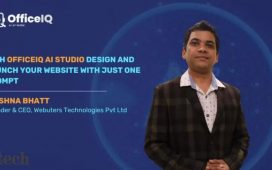Tucked into Nvidia’s quarterly filing with US securities regulators, Nvidia for the first time said that restrictions on the use of open-source AI models from China such as DeepSeek and Qwen could hurt its business, as could US rules barring connected vehicle technology from China, where Nvidia’s long-struggling car chip business has finally flourished.
While Nvidia CEO Jensen Huang on a conference call with analysts praised US President Donald Trump’s decision to rescind an export rule put in place by President Joe Biden that would have regulated the flow of Nvidia’s chips around the world, the company’s quarterly filing noted that no new rule had been issued in its place and that a “replacement rule may impose new restrictions on our products or operations.”
On the other hand, Huang criticised new export curbs imposed by the Trump administration in April. The curbs stop the company from selling its H20 chip made for the Chinese market, which Huang called “a springboard to global success.”
The export limits cost Nvidia $2.5 billion in sales during its just-ended fiscal first quarter, and it expects another $8 billion sales hit during the current fiscal second quarter. Sales of the H20 in China earned Nvidia $4.6 billion in revenue as customers stockpiled the chips before the curbs set in. The China business accounted for 12.5% of overall revenue.
“The question is not whether China will have AI — it already does. The question is whether one of the world’s largest AI markets will run on American platforms,” Huang said, later adding that “AI export controls should strengthen US platforms, not drive half of the world’s AI talent to rivals.”
Discover the stories of your interest

Huang also argued that keeping Chinese open-source models such as DeepSeek and Qwen running on Nvidia chips provides US firms with valuable insight on where the global AI industry is headed. “US platforms must remain the preferred platform for open-source AI,” he said. “That means supporting collaboration with top developers globally, including in China. America wins when models like DeepSeek and Qwen run best on American infrastructure.”
Sales growth powers on
Nvidia shares rose 5.6% before the bell on Thursday, leading a rally in chip stocks, as news that a US trade court blocked most of President Donald Trump’s proposed tariffs also lifted investor sentiment. The company will add around $150 billion to its market value of about $3.289 trillion, if the gains hold.
Despite the China export curbs, Nvidia forecast sales of $45 billion, plus or minus 2%, in the second quarter, only slightly below analysts’ average estimate of $45.90 billion, according to data compiled by LSEG. That would imply growth of about 50% from a year earlier.
Executives also highlighted deals worth potentially billions of dollars in the coming months and years in Saudi Arabia, the United Arab Emirates and Taiwan, leading analysts to conclude the impact of US-China trade tensions was not as bad as feared.
“Rather than downplay the China hit, (Huang) contextualised it as a known, manageable speed bump in an otherwise hyper-accelerated growth narrative,” said Michael Ashley Schulman, chief investment officer of Running Point Capital.
In his praise for Trump, Huang highlighted the President’s deal-filled tour of the Middle East.
“President Trump wants US tech to lead,” Huang said. “The deals he announced are wins for America, creating jobs, advancing infrastructure, generating tax revenue and reducing the US trade deficit.”
Huang also said that he agreed with a vision expressed by cabinet officials such as Commerce Secretary Howard Lutnick of bringing factories back to the United States and staffing them with robots.
“Future plants will be highly computerised in robotics. We share this vision,” Huang said.









